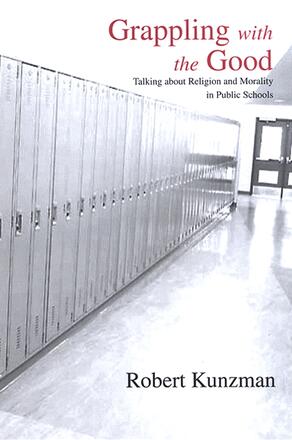
Grappling with the Good
Talking about Religion and Morality in Public Schools
Alternative formats available from:
Asks whether public schools can and should help students discuss moral disagreements, even when religion is involved.
Description
2007 CHOICE Outstanding Academic Title
Weaving together history, philosophy, and curriculum, Grappling with the Good offers a vision of public education in which students learn to engage respectfully with the diversity of beliefs about how to live together in society. Robert Kunzman argues that we can and should help students learn how to talk about religion and morality, and bring together our differing visions of life. He describes how such an approach might work in the K–12 setting, explores central philosophical principles, and shares his ongoing experiences and insights in helping students to "grapple with the good. "
Robert Kunzman is Associate Professor of Education at Indiana University at Bloomington and a public high school teacher.